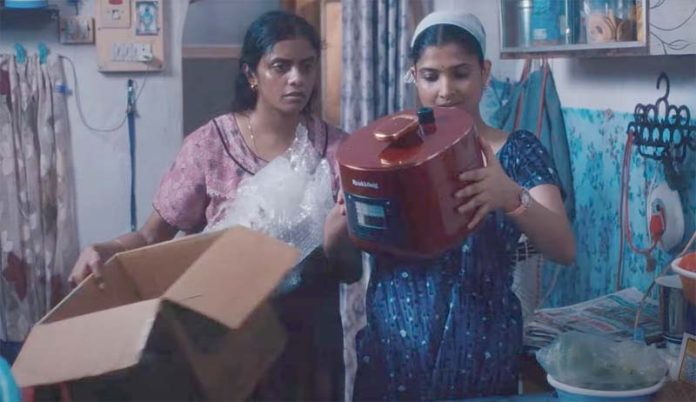
WINDSOR: Windsor International Film Festival (WIFF) is celebrating its 20th illustrious edition this October. It is catching on in popularity on both sides of the border with film buffs from Detroit, US, also in attendance.
Amongst the impressive lineup of over 200 international films was the Cannes stand-out film from India, All We Imagine as Light, directed by Payal Kapadia.
After doing its rounds of Toronto at TIFF and in London, Ontario it was presented at Windsor. It is fortuitous to see Indian films making inroads into festivals outside of the Greater Toronto Area in the middle Canada where the thirst for quality art and cultural programs is growing.
The film is set in Mumbai and is about three women in different stages of their life and career and how they are living out their mundane lives in the “City of Dreams”. The film portrays Mumbai as a melting pot of cultures as people from the North, South, East, and West descend on Mumbai every day to seek a living any which way they can – and it is presented in multiple Indian languages – Malayalam, Hindi,and some English.
The production is filled with scenes of the unglamorous, hustle and bustle of the lower classes who must work hard in boring jobs to eke out their daily bread. The noise and the dreary tiny shoebox accommodations that the people all concede to live in – just to be in the city of Mumbai is starkly contrasted with the fresh air and scenes of the peaceful seaside village life later in the film.
As the characters develop and play out, it becomes evident that Mumbai is not really a “City of Dreams” but rather a “City of Illusions”.
Sister Prabha (Kani Kusruti) who is the main character, is a serious and hard-working nurse in a local suburban hospital living with her younger roommate nurse Anu, who is a single and fun-loving girl.
Sister Prabha is well-respected at the hospital but has very little to live for outside of her work. She is married to a man through an arrangement her parents had made and she was with her husband only a few days before he left for Germany. She has not heard from him much after that until he sends her a surprise gift. Prabha thinks often about her husband and is living a lonely life yearning for love.She plays a role of being an elder sister or surrogate mother to her room mate Anu (Divya Prabha), who has found a forbidden love interest in Shaiz (Hridhu Haroon), a young Muslim boy. Prabha does not appreciate the displays of love and is concerned about Anu’s reputation in a traditional patriarchal society where any kind of relationship outside marriage is frowned upon.
On the other side is Parvathy (Chaya Kadam), a middle-aged woman who has worked most of her life in the hospital canteen making tea, coffee and snacks. Prabha tries to help her situation as Parvathy is on the verge of being evicted from her modest apartment.
The film displays the unglamorous work of mundane lives of lower middle class working society and makes no bones about it. It is the stark underbelly of Mumbai where dreams are made and destroyed cruelly by fate everyday.
The scenery then changes with all three women going to the seaside village where Parvathy has a rustic hut.
It is here that they all undergo a change in their lives and accept the reality of living in the here and now – breaking the illusions.
The movie subtly shows how living in the city has changed their dreams and going back to the roots of the idyllic, peaceful, simple life in the village reveals a new reality of life.
The movie is an excellent and poignant revelation of working class women’s struggle in the “City of Illusions”.
The Windsor International Film Festival runs from October 24 until November 4 – a must-see stop for all film buffs!
READ NEXT: Hamlet thrills Brampton with rising international star Ahir Raza Mir








